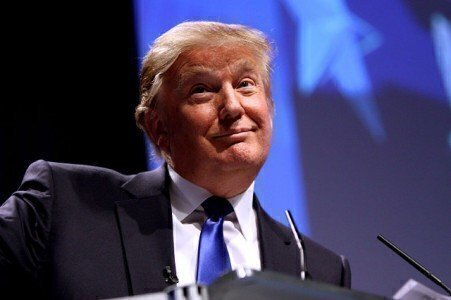Real estate mogul Donald Trump is running for president, and if history is any judge, The Donald would be in unique company if he gets the GOP nomination coming right from the business world.

In most cases, presidential candidates and even candidates for the Senate, the House and gubernatorial positions have some experience in elected or appointed public office. The last two Presidents to take office without having any experience in a major elected office were Dwight Eisenhower in 1952 and Herbert Hoover in 1929.
President Eisenhower had a long, distinguished military career and was serving as Columbia University’s president before the 1952 election. President Hoover had served as Commerce Secretary for Calvin Coolidge until 1928 and he amassed considerable wealth as a metals engineer a decade earlier.
Ulysses Grant and Zachary Taylor came from the military to the White House, as did George Washington, who also had considerable business experience. And successful candidates like William McKinley (as a newspaper publisher), Ronald Reagan (as a union president and actor) and George H.W. Bush (as an oil executive) had business experience, but all three had served in elected office.
But it would be hard to find an example of a major-party presidential nominee who came directly from the board room to the Oval Office without elected office experience.
One example is Republican businessman Wendell Wilkie, who managed to gain the Republican presidential nomination in 1940 at the GOP convention in Philadelphia without any experience in elected office. Wilkie defeated Thomas Dewey and Robert Taft on the sixth ballot, but lost handily to Franklin Roosevelt in the general election.
Newspaper publisher Horace Greeley ran as the Democratic and Liberal Republican nominee in 1872 and lost to Grant. But Greeley did spend three months in the House of Representatives in the late 1840s.
William Randolph Hearst and Henry Ford both flirted with runs for the White House. Hearst finished second at the Democratic convention in 1904 to Judge Alton Parker after failing to get William Jennings Bryan’s endorsement. (He also was elected to the House for two terms, including one term just prior to his presidential bid.)
Ford had been a widely talked-about contender to oppose President Calvin Coolidge for the 1924 Republican nomination, but he decided to back Coolidge’s re-election.
And in 1932, former General Electric chairman Owen Young was seen as a contender to Franklin Roosevelt as the Democratic nominee, but Young strongly supported Roosevelt.
Among independent candidates, Ross Perot is the most prominent of business people who sought the presidency. Perot influenced the 1992 and 1996 presidential elections, winning 19 percent of the popular vote in 1992.
In the current election cycle, former Hewlett Packard executive Carly Fiorina and Dr. Ben Carson join Trump as candidates with no elected office experience.






